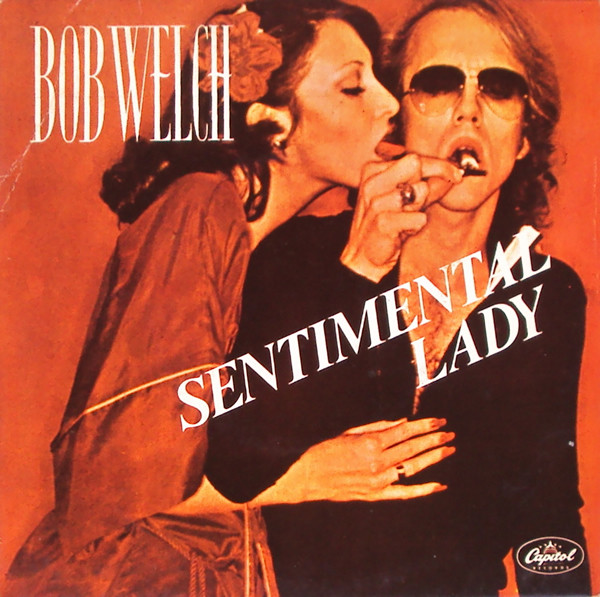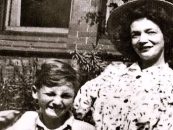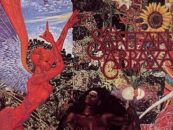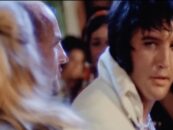Radio Hits in December 1977: Getting Sentimental
by Best Classic Bands Staff In early December 1977, we were a week or so away from Saturday Night Fever opening in theaters, a surprise hit that catapulted the Bee Gees‘ career into the stratosphere (their “How Deep Is Your Love” was #2 this week) and launched John Travolta to movie stardom.
In early December 1977, we were a week or so away from Saturday Night Fever opening in theaters, a surprise hit that catapulted the Bee Gees‘ career into the stratosphere (their “How Deep Is Your Love” was #2 this week) and launched John Travolta to movie stardom.
Meanwhile, on the Top 40 on this week’s survey from Boston’s WRKO, some huge names in classic rock were enjoying some of the biggest hits of their careers.
Bubbling under and climbing from #30 to #27 was “Turn to Stone” from Electric Light Orchestra, the first single from their double-LP Out of the Blue. The song would peak at #13 in the U.S.
Jumping from #26 to #21 was James Taylor‘s buoyant “Your Smiling Face.” While researching this story, we were surprised to find out that the song reached only #20 on the Hot 100.
Santana‘s great cover of the Zombies’ “She’s Not There” took a nice jump this week from #22 to #18 (though the song would only hit #27 nationally).
Taking a big jump from #23 to #16: Rod Stewart‘s “You’re in My Heart,” which would ultimately reach #4.
The Steve Miller Band weighed in with “Swingtown” at #9. Though it would only reach #17 nationally, it was his seventh Top 30 hit in a two-year period.
At #8, Bob Welch enjoyed a big hit with “Sentimental Lady,” a cover of the tune he wrote and originally recorded in 1972 while a member of Fleetwood Mac (more about them in a moment). He’s joined on this version by Christine McVie, who provides a great background vocal, as well as by Mac members Lindsay Buckingham and Mick Fleetwood. The video has to be seen to be believed…
Linda Ronstadt was in the midst of a string of huge hit singles when her cover of “Blue Bayou,” co-written by Roy Orbison, was released. Her version – at #7 this week – would ultimately peak at #3, far surpassing Orbison’s own 1963 performance, which stalled at #29.
At #6 was Fleetwood Mac‘s own “You Make Loving Fun,” the fourth Top 10 hit from the band’s massive Rumours album. The song was written and sung by Christine McVie.
Although Randy Newman would go on to disparage his hit single “Short People” as a novelty song, it was far and away the singer/composer’s biggest pop hit of his career, peaking at #2 nationally. The lyrics were criticized at the time by some who found them distasteful.
Related: 11 surprising 1970’s radio hits
And at #1… Queen‘s “We Will Rock You”/”We Are The Champions.” Though it somehow only reached #4 nationally, it was the band’s biggest hit up until then. Since then, the song has taken on a life of it’s own, often played on stadium and arena loudspeakers when a team wins a championship game.
Watch the scene in the Bohemian Rhapsody biopic where Brian May’s character explains what he had in mind
Related: 1977 – The year in 50 classic rock albums
27. “Turn to Stone” – Electric Light Orchestra
21. “Your Smiling Face” – James Taylor
18. “She’s Not There” – Santana
16. “You’re in My Heart” – Rod Stewart
10. “Baby Come Back” – Player
9. “Swingtown” – Steve Miller
8. “Sentimental Lady” – Bob Welch
7. “Blue Bayou” – Linda Ronstadt
6. “You Make Loving Fun” – Fleetwood Mac
5. “Short People” – Randy Newman
4. “Don’t It Make My Brown Eyes Blue” – Crystal Gayle
3. “Native New Yorker” – Odyssey
2. “How Deep Is Your Love” – Bee Gees
1. “We Will Rock You”/”We Are The Champions” – Queen







4 Comments so far
Jump into a conversationI must have missed something. What’s so unbelievable about Welch’s video that has to be seen to believed?
That said, about the Welch Video, his was kind of an unheralded time of Fleetwood Mac, in my opinion. In reality, there was never a version of original Mac LPs, that didn’t stand on their own. Those Danny Kirwin/Bob Welch years yielded some really great music, and was, essentially, the point at which Fleetwood Mac’s music took more of a dreamy pop turn. Much of that had to do with the addition of the marvelous Christine McVie during that period. And as the first and only female singer in the band, at that time, added a new and prominent aspect to the band’s sound and type of songs. Christine aside, Bob Welch’s brief period with the Mac, worked great with Christine, and they made some memorable music.
Welch’s video is certainly cringe-worthy, but it is a by-product of the time. A bigger travesty is that Bob was left out of the Rock & Roll Hall of Fame as a key member of Fleetwood Mac.
Love the Bob Welch song, but I don’t know what’s worse, the cheesy video or his horrific combover.